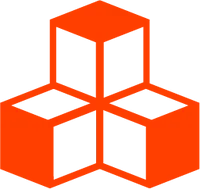@threlte/extras
<MeshDiscardMaterial>
<MeshDiscardMaterial> is a material that renders nothing. It does so by discarding everything in the fragment shader. The difference between <T.Mesh visible={false} /> and <MeshDiscardMaterial> is that shadows and children are still visible when using <MeshDiscardMaterial>.
<script lang="ts">
import Scene from './Scene.svelte'
import { Canvas } from '@threlte/core'
import { Checkbox, Pane } from 'svelte-tweakpane-ui'
</script>
<div>
<Canvas>
<Scene />
</Canvas>
</div>
<style>
div {
height: 100%;
}
</style><script lang="ts">
import { T } from '@threlte/core'
import { BakeShadows, MeshDiscardMaterial, OrbitControls } from '@threlte/extras'
import { MeshStandardMaterial, SphereGeometry } from 'three'
const geometry = new SphereGeometry()
const material = new MeshStandardMaterial({ color: 'orangered' })
</script>
<T.PerspectiveCamera
makeDefault
position={[5, 7, 5]}
>
<OrbitControls />
</T.PerspectiveCamera>
<T.DirectionalLight
position={[0, 5, 5]}
castShadow
/>
<T.Mesh
{geometry}
{material}
position.x={-2}
castShadow
/>
<T.Mesh
{geometry}
{material}
castShadow
visible={false}
/>
<T.Mesh
{geometry}
position={2}
castShadow
>
<MeshDiscardMaterial />
</T.Mesh>
<T.Mesh
receiveShadow
rotation.x={-1 * 0.5 * Math.PI}
position.y={-1 * 1.25}
>
<T.MeshStandardMaterial />
<T.CircleGeometry args={[5]} />
</T.Mesh>
<BakeShadows />In the example above, the visible mesh does not use <MeshDiscardMaterial> nor sets visible={false}. The center mesh sets visible={false}. Notice how its shadow is missing. The final mesh uses <MeshDiscardMaterial> and its shadow is visible even though the mesh itself isn’t.
Component Signature
<MeshDiscardMaterial> extends
<T
.
ShaderMaterial>
and supports all its props, slot props, bindings and events.
